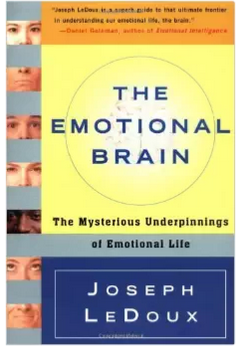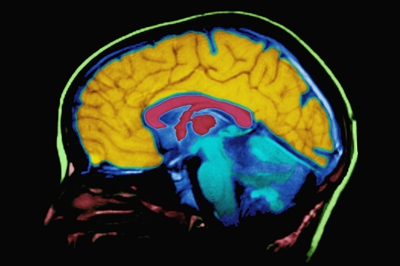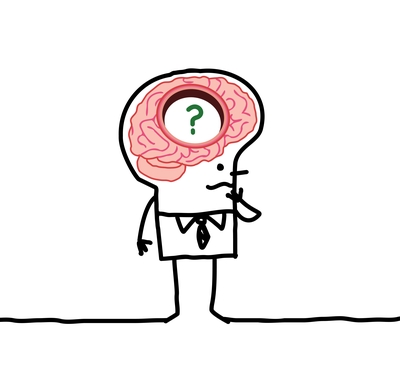I met Elliot several years ago when I was a school counselor.
He was in fifth grade. He didn’t smile much. In fact, most of the time, he didn’t have any kind of expression on his face. When he spoke, he barely moved his mouth.
The principal, his teachers, and his mom had all come in to see me several times to talk about the fact that he was being sent to the office on a weekly basis for pushing or hitting other kids. When his mom came to see me, she told me that she was angry and depressed. She felt like most of the time she ‘couldn’t stand him.’
What I had been working on in my own life was something called ‘interoception’.
It is the ability to become more aware of the physical sensations in our body as a way to notice how we are reacting to people and events. By noticing these sensations, we can slow down the behavior that comes next. It had been helping me in several situations in my own life, so I decided to try to explain it to Elliot.
I started with my own example. I had started to notice that each time I didn’t get a reply to one of my emails from certain people, I felt a prickly sensation in my finger tips. As I kept noticing this, it became clear that this sensation was somehow related to feeling rejected. It only happened with people who I felt insecure around.
My challenge had been that each time I didn’t get a response to an email, I wanted to relieve myself of this uncomfortable sensation in my fingertips, so I would write another message back to that person. As you can probably guess, since they hadn’t responded the first time, they didn’t respond to the second message either! So the prickly sensation would start again.
I began reading more and more about this – four books gave me a clearer understanding (just a heads up though – this was about 10 years ago, so these books may have outdated information):
Joseph LeDoux’s The Emotional Brain,
Evolve Your Brain by Joe Dispenza,
Emotional Alchemy by Tara Bennett Goleman, and
The Mind and the Brain by J.M. Schwarz & Sharon Begley.
What I began to learn was that:
- I could notice those sensations and not immediately do something to ‘get rid of’ the feeling. Just noticing them was the first step.
- by not creating a story and adding assumptions about another person’s behavior would help quiet down those sensations.
- by focusing on my breathing or something else in my present environment, I was better able to notice that the sensations bubbled up and then faded away – they weren’t ‘permanent’.
The reactions that happen the most quickly are generally the ones that are the most automated – and are most influenced by our less evolved structures.
The slower-to-respond circuitry is higher up and further away from our motor centers and the centers that are receiving the inputs from our senses. So those signals need a little more time to travel from the brain stem (attached to the spine) to our frontal lobe.
This means that the very first reaction I was having and the ‘urge’ I felt immediately – without ‘thinking’ – to reply angrily to someone who hadn’t written me back yet – was my less evolved systems activating. I would need to wait a moment until the more evolved system could even have a chance to process.
As I sat there in the bus, checking my inbox, all of this insight flashed within me. A voice inside said, ‘I can just sit here for a moment. I don’t need to do anything yet.’ I had heard the description of it being like a drug addiction. The urge to have a ‘hit’ of ‘neuro-chemicals’ would be strong. But if I could ride out the wave of that urge to get a dose of those familiar hormones, the cravings would gradually quiet down.
So that’s what I did. As I sat on the bus, the urge rose up like a wave – the ‘craving’ to do something – anything – to change my discomfort, to not have that prickly sensation in my fingers and chest.
But I let the wave wash over me. I kept breathing. I looked out the window. And then the wave passed.
The urge to move and do something was gone. I felt peace. It felt quiet in my mind. I knew another wave would hit me again, but this feeling of peace and stillness was so good that I also knew I was going to do everything I could to have more of it.
That was the beginning of a new journey for me – a journey of finding out how much more power I actually had over my life than I had previously thought. It was the beginning of thousands of hours of visualizing, meditating, learning, attending workshops, retreats, and most of all choosing to have more time where I was in control of my mind. This meant intentional moments without technology taking over. More moments of me putting in effort to be present.
And that journey has never stopped. I still need to put effort in to notice my breath, or feel that sense of presence. But the moments of presence last longer. And the feeling of peace I get as I meditate or walk slowly down the street, eat lunch, sit with loved ones… noticing the sounds, smells, sights and sensations of each moment feels so good that it is worth the effort.
I shared this with Elliot. I asked him if he noticed any sensations when he was angry or upset. He said he didn’t. He just felt angry.
I asked him to imagine one of the situations that upset him so he could see if he noticed any sensations in his body. He imagined a scenario that had happened, but still just felt angry -like a cloud, he said. He couldn’t pinpoint anything specific.
I decided to model to him what I was talking about in ‘real time’. So I imagined something that had upset me recently, I talked about where I was feeling it in my body. It took a few sessions of me doing this, and then one day – he had an insight.
As he thought of the student in his class who was bothering him, he looked down and noticed that his fist was clenching. He also felt “heat” in his chest. He said to me, “Miss Stefanie! I have an ‘indicator’!” I was so excited – I hadn’t even used that word, but it was exactly what it was.
The next day after school, he came up to me with a huge smile on his face.
“Miss Stefanie,” he said. “Guess what? Sophie was bugging me today and I was getting really angry. But then I saw that my fist clenching and I knew that was my indicator that I was about to hit her. But I didn’t want to use my ‘reptile brain’. I wanted to use my prefrontal cortex. So I told her I didn’t want to fight and I walked away.”
It was a huge victory that made a positive difference in Elliot’s life. He no longer got detention on a weekly basis. In fact, he didn’t have a single detention in the remaining months I was at the school.
Interoception is a a skill we can learn. And it’s a skill we can teach.
But we have to go through the process of learning and applying it in our own life first (or in parallel).
Increasing self-awareness is something that, if we could teach it in school, could change the trajectory of many people’s lives.
If you want to start your journey of learning how to become more in tune with the physiological sensations in your body, make sure you listen to one of my most popular podcast episodes: Self-Regulation: The remarkable skill that will make you a better human
You may also want to consider joining my online training – Mindset Neuroscience 101
Related Articles:
Understanding neuroplasticity is today’s moral imperative: 5 MUST-READ books
This is what happens to your brain when you add diversity to your life






Leave a Reply
You must be logged in to post a comment.